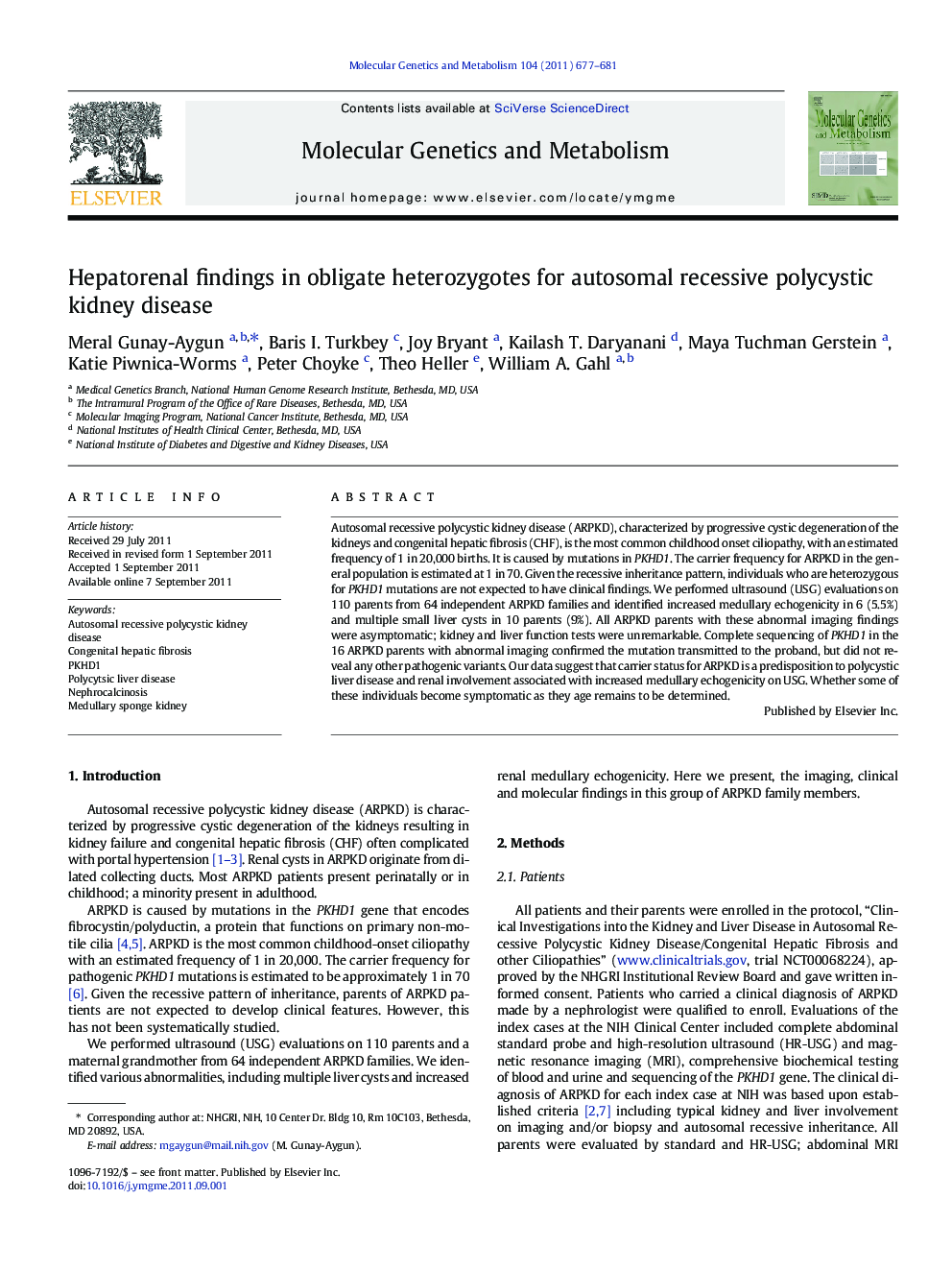| Article ID | Journal | Published Year | Pages | File Type |
|---|---|---|---|---|
| 10833865 | Molecular Genetics and Metabolism | 2011 | 5 Pages |
Abstract
Autosomal recessive polycystic kidney disease (ARPKD), characterized by progressive cystic degeneration of the kidneys and congenital hepatic fibrosis (CHF), is the most common childhood onset ciliopathy, with an estimated frequency of 1 in 20,000 births. It is caused by mutations in PKHD1. The carrier frequency for ARPKD in the general population is estimated at 1 in 70. Given the recessive inheritance pattern, individuals who are heterozygous for PKHD1 mutations are not expected to have clinical findings. We performed ultrasound (USG) evaluations on 110 parents from 64 independent ARPKD families and identified increased medullary echogenicity in 6 (5.5%) and multiple small liver cysts in 10 parents (9%). All ARPKD parents with these abnormal imaging findings were asymptomatic; kidney and liver function tests were unremarkable. Complete sequencing of PKHD1 in the 16 ARPKD parents with abnormal imaging confirmed the mutation transmitted to the proband, but did not reveal any other pathogenic variants. Our data suggest that carrier status for ARPKD is a predisposition to polycystic liver disease and renal involvement associated with increased medullary echogenicity on USG. Whether some of these individuals become symptomatic as they age remains to be determined.
Keywords
Related Topics
Life Sciences
Biochemistry, Genetics and Molecular Biology
Biochemistry
Authors
Meral Gunay-Aygun, Baris I. Turkbey, Joy Bryant, Kailash T. Daryanani, Maya Tuchman Gerstein, Katie Piwnica-Worms, Peter Choyke, Theo Heller, William A. Gahl,
